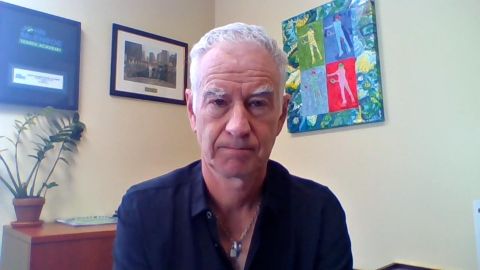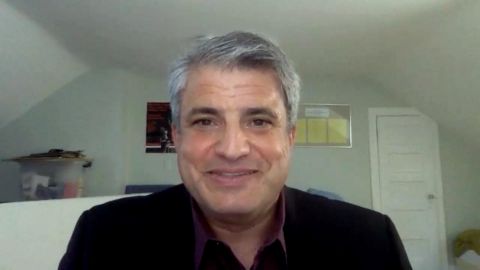Read Transcript EXPAND
CHRISTIANE AMANPOUR: We know a lot about Muhammad Ali. We have seen his fights. We know who he is, the greatest, sting like a bee, float like a butterfly, or the other way round. Why did you decide that there was more to say about him?
KEN BURNS, DOCUMENTARY FILMMAKER: We are interested, as we are wont to do, in a rather comprehensive view. And so we wanted to start at his birth and childhood in segregated Jim Crow Louisville, Kentucky, and go, take it all the way to his death by Parkinson’s not that long ago, in 2016, five years ago. We also wanted to cover the boxing and do it completely. And, of course, if you take the series of his boxing matches, it’s almost like the complete works of William Shakespeare. You couldn’t convince a Hollywood director that this is exactly what had happened. So they’re wonderful. But we also wanted to follow this as a spiritual journey and a person. We wanted to (AUDIO GAP) childhood, find out about his parents, find out about both the pluses, as well as the minuses, obviously, of living in Jim Crow Louisville, find out what he was like as a young man, the personal life, the four wives, the children.
AMANPOUR: It’s an amazing story and an amazing epic, actually. And it all, to my mind, anyway, concludes with politics. It’s how this person in, all his complexity, shaped so much of the American life and American politics. So let’s just start a little bit before the beginning, before his birth. As a little boy, he came accidentally to boxing, as you say, growing up in Jim Crow segregated Louisville, Kentucky. He, as you mentioned, basically had his brand-new red Schwinn bicycle stolen that he was sharing with his brother. And he went to find a policeman to complain to. I’m going to play this segment from the first episode and then we’re going to talk about it.
(BEGIN VIDEO CLIP)
ROBERT LIPSYTE, JOURNALIST: He went. And the cop in the basement was this Joe Martin, who was running a little boxing school.
UNIDENTIFIED MALE: Cassius told the story years later that, for a minute, he forgot about his bike, because the sight of his boxing gym, the smell of the leather and the sweat and the excitement, the action of boys in a ring hitting each other, black and white, together.
LIPSYTE: And he reported the crime, and I’m going to get the guy. I’m going to kill him. And Joe Martin said, well, do you know how to fight? Fight? And that was the beginning.
(END VIDEO CLIP)
About This Episode EXPAND
Ken Burns discusses his new documentary “Muhammad Ali.” 7-time Grand Slam champion John McEnroe weighs in on this year’s tournament. Sports journalist Dave Zirin explains how football player Colin Kaepernick sparked an international social movement by kneeling during the national anthem.
LEARN MORE


